
Iran’s new strategy: regional multilateralism
This editorial addresses the necessity of a new foreign policy for Iran in the post-JCPOA era.
The editorialist begins by portraying Iran’s current dire straits following the U.S. withdrawal from the JCPOA. In addition to the U.S. imposing tough sanctions and new political pressures, other countries have also detached themselves from Iran for their own interests. For instance, China needs to avoid a direct confrontation with the U.S. for its economic growth in the next decade. Russia tends to keep balance in its relations with the U.S. to stabilize its global power. Moreover, any hope for Europe’s economic help to Iran has been lost.
After this introduction, the editorialist comes to his point: Iran needs to focus on a new strategy in its foreign policy, which is based on reinforcing its independent national systems in the economy, politics, and security, as well as relying on multilateralism. This strategy means that Iran should have a bilateral or trilateral economic merge with its neighboring countries while utilizing its geographical superiority in order to enter a big geopolitical game within a framework of a political multilateralism.
In conclusion, the editorialist emphasizes that Iran should be strong from within and have a strong regional connectivity which can help improve its economy in order to have a useful role in the regional geopolitics.
An editorial in Shargh Daily on June 26, 2018
Defective transparency
This editorial centers on the crisis in Iran’s currency and gold coin markets.
The editorialist opens his piece by saying that Iran’s current government has taken pride in controlling the inflation rate of currency and gold coin so far. From the very beginning of Hassan Rouhani’s presidency, it was expected that his administration, unlike the previous one, would have a fine grasp of the economy. However, it gradually became clear that the inflexibility of structures hardly allowed any major changes. Neither did the new administration had any tendency to alter those structures. The crisis Iran is facing today is rooted in disregarding the currency rate and policies for pricing it continues the editorialist. The government by supporting the currency rate not only weakens export but also provides the rich rent-seekers with more benefits, hence aggravating poverty and unemployment. The administration’s announcement of currency rate as 4200 tomans led to thousand billions of rents.
All in all, the editorial closes by saying that controlling the currency rate per se is no matter for pride. The major issue the Iranian government has been suffering from is disregarding economic structures which have been shaped by intrusive policies.
An editorial in Etemad Daily on June 27, 2018

Plans to impeach Rouhani

Amir Khojasteh, head of parliamentary Fraction for Fighting Economic Corruption, said, “We give 10 to 15 days to the government present its plans for countering enemies’ conspiracies in the economic war, and if it can’t, we will start the plan to impeach government’s economic ministers and raise the issue of the president’s incompetence.” He added that the issue of impeachment and incompetence will not be politically motivated but will be for the government’s incompetence in the field of economy.
Jahan news
Nouri Hamedani: People are rightfully unhappy with bad economic conditions
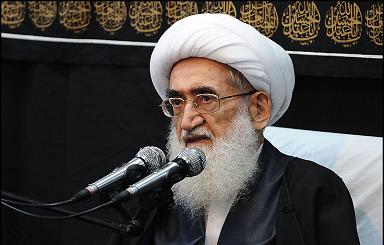
Hossein Nouri Hamedani criticized “silence of a certain group” against different kinds of corruption, particularly economic corruption, in the society, saying, fighting economic corruption is people’s demand, and it must be confronted seriously. Pointing out to people’s economic problems, saying while certain people have embezzled billions of tomans or receive astronomical salaries, people suffer from economic problems.
Vatan Emrouz
Sadegh Larijani threatens to execute “disruptors of economic stability”
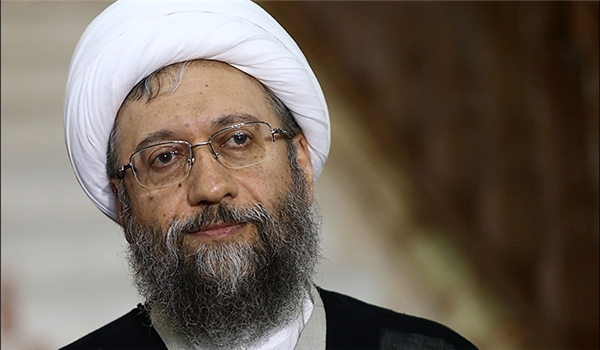
After unprecedented protests in Tehran Grand Bazar, Iranian Chief Justice Sadegh Larijani threatened that “disruptors of economic stability” will be confronted and executed. Larijani said, “some people with their huge capitals intend to disrupt economic stability; these people must be identified by security forces.” Iranian chief justice called this as “betraying people and the establishment”, saying “we will not cave in and will confront these people.”
Many businessmen shut their shops in protest against skyrocketing price of foreign currencies, and their assembly ended in clashes with police forces. Beside Tehran, protesters against high prices took to streets in cities of Karaj, Qeshm, Bandar Abbas, and Mashhad, and businessmen closed their shops.
BBC Persian
Rouhani: the Heavy burden on 3 branches
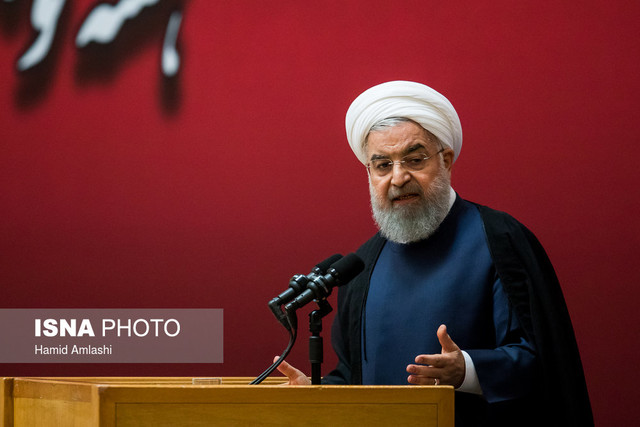
Iranian President Hassan Rouhani said today there is a heavy burden on the three branches in Iran, while the U.S. is after making people lose their hopes for the future and become frustrated. He added while Iran has had a legal and political victory, the U.S. is trying to break Iranian people by a psychological and economic warfare.
Amidst recent unrests in Iran, 180 MPs have signed a letter asking Rouhani to change the economic team in his government. Rouhani’s chief of staff Mahmoud Vaezi has said that Rouhani might use new people in his cabinet.
ISNA
Lawmaker ridicules Rouhani after publishing pictures in sports clothes
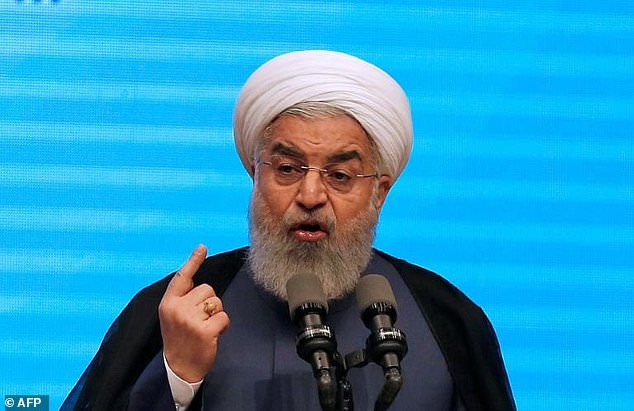
After publication of Hassan Rouhani’s images with sports clothes in mountains around Tehran, Mashhad MP Javad Karimi Ghoddosi said in a tweet that it is better for Iranian president to take care of the economic conditions and administration of the country with the same precision that he takes care of his own appearance.
Recently Hassan Rouhani’s pictures without sports clothes were published on the Internet, showing him smiling and wearing sports clothes from an American brand, Under Armor. Users of cyberspace slammed Rouhani for these pictures taken at a time when people are severely suffering from economic conditions.
Farad news
Ali Larijani defends Iran’s presence in Syria and Lebanon
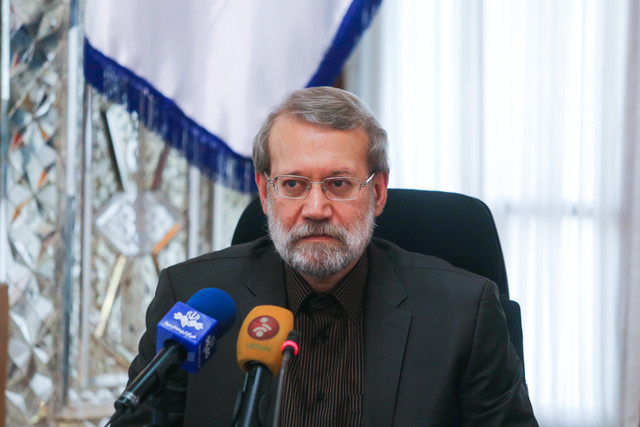
Speaker of Iranian Parliament Ali Larijani said, “some people ask about what we are doing in Lebanon and Syria; if we are present in Syria and Lebanon, it is for the security of our own country.” With regard to Iran’s helps to Syria and Iraq, Larijani added that this help was for preserving the security of the country, saying that “the terrorist groups were created to affect the security of Iranians.”
In recent protests against poor economic conditions and spiking prices of foreign currencies in Iran, protesters have chanted slogans against Iran’s help to Syria, Lebanon, and Palestine, thus questioning Iran’s foreign policy in this regard.
Young Journalists Club
Nobakht reacts to Rahim Safavi’s remarks:
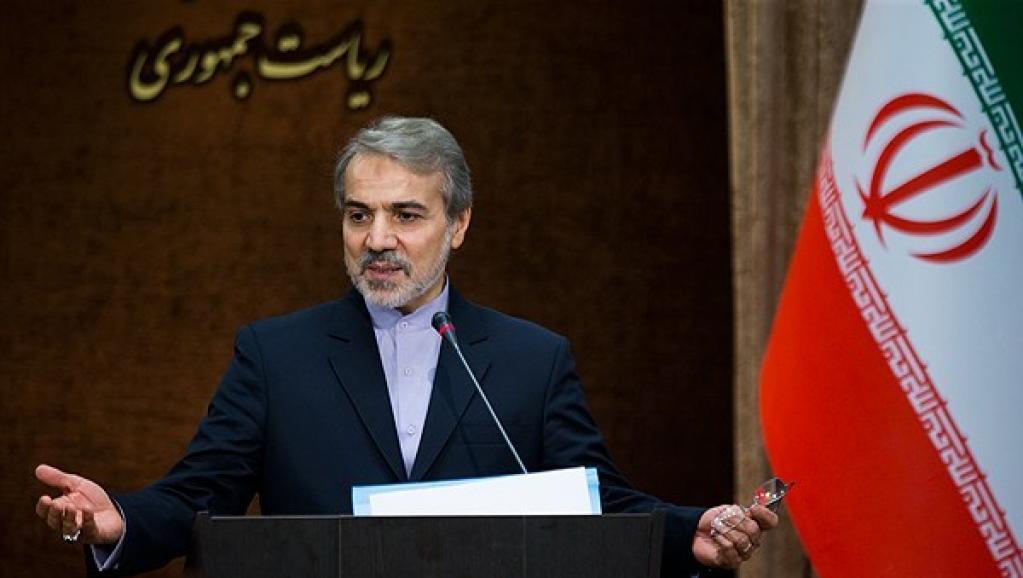
Militaries should not interfere in politics
In response to remarks of Yahya Rahim Safavi, advisor and aide to Iranian supreme leader and former commander of IRGC, as to the government’s incapacity to run the country, Government Spokesperson Mohammad Bagher Nobakht said that “high ranking militaries express their own personal views, not those of the Army or Iranian Revolutionary Guards.” He said he hoped that militaries would prevent from interfering in the politics.
RFI Persian
Zarif: JCPOA is firmly in place
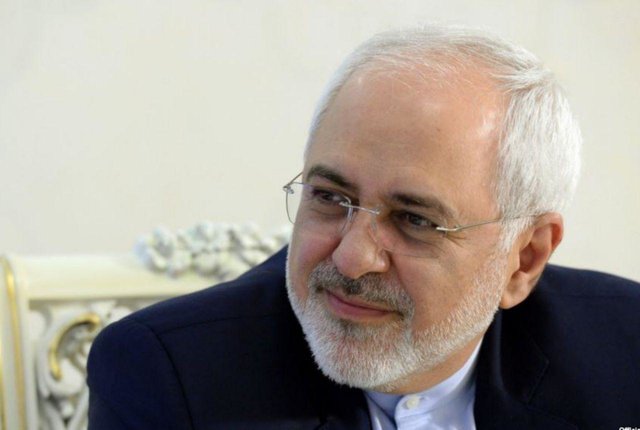
In response to a question concerning the destiny of JCPOA and Iran’s talk with European Union to preserve this international accord, Iranian Foreign Minister Mohammad Javad Zarif urged that JCPOA is firmly in its place. Zarif pointed out to Iran’s talk with remaining countries including France, Britain, and Germany, saying “we should see to what extent members of JCPOA and other members of the international community are ready to take the necessary steps in preserving this international accord.”
ISNA
Rahim Safavi: The country seems to run better without the government
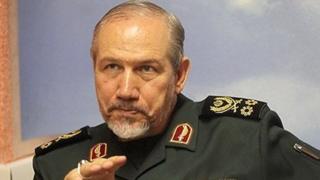
Yahya Rahim Safavi, aide and advisor to Iran’s supreme leader, pointed out to the current conditions in Iran, saying “sometimes it seems that the country runs better without the government.” Safavi who was previously commander of Iranian Revolutionary Guards said that Iran has problems in creating a government, adding that people go to offices, organizations, and municipalities and their issues are not resolved, which results in creating dissatisfaction among them.
During recent weeks, new protests have shaped in Iran due to unprecedented instability in the foreign currency and gold market, as a result of which Tehran’s market has witnessed shut down of shops and widespread protests.
BBC Persian
Velayati meets with Iraq’s national security advisor

Ali Akbar Velayati, advisor of Iranian supreme leader in international affairs, met with Iraq’s national security advisor, Faleh Fayaz. In this meeting, Velayati called Iraq’s significant victory a “historical victory over savage and anti-Islam ISIS,” hoping for constructive, positive talks while Fayaz is in Iran.
Fayaz called Iran-Iraq relationship very extensive, pointing out to Iran’s essential role in supporting Iraq’s army in confronting ISIS.
ISNA
Lawmaker: We are in a condition of war

Hadi Ghavami, deputy head of Budget and Planning Commission in the Iranian parliament, said “currently we are in a condition of war”, and when Trump announces imposing tough sanctions against Iran, it certainly makes foreign investment in the country tougher and puts foreign investors under pressure. This will result in lack of prosperity in production and chaos in the country’s economy, added Ghavami. Deputy head of Budget and Planning Commission urged that “if we move forward without managing expectations, tougher economic conditions are ahead of us.”
Iran Emrouz
Hegameh Shahidi arrested in Kish Island
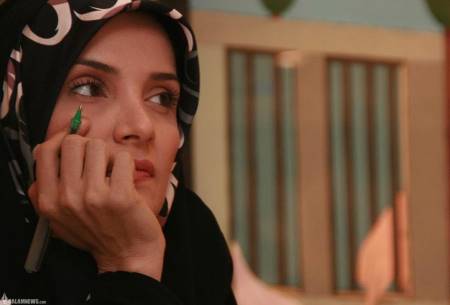
Tehran prosecutor office announced the arrest of Hengameh Shahidi, political activist, journalist and former advisor to Mehdi Karroubi in Kish Island, southern Iran. Shahidi had spent six months in solitary confinement in 2017. According to Tehran prosecutor office, Shahidi had been under prosecution and was arrested while she was wearing a mask to conceal her identity and was taken into custody.
According to Shahidi’s daughter, Parmis Taherian, she has had a heart attack a few days ago and was immediately arrested after being discharged.
Ensaf news
Tehran MP: We are after meeting with imprisoned female dervishes
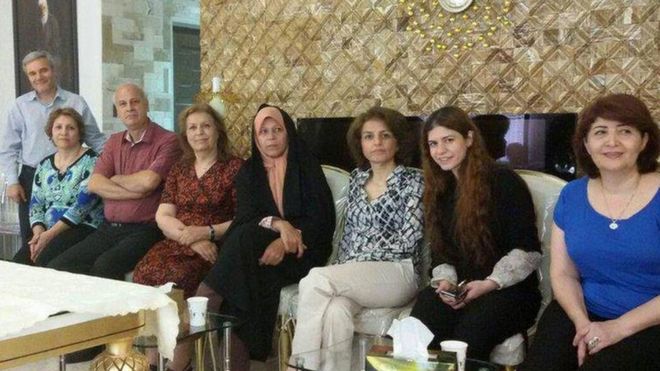
With regard to lawmakers meeting with Iranian female dervishes who are imprisoned, Tehran MP Fatemeh Saeedi said, “we have written a letter in this regard, asking for meeting with them, but haven’t received any response yet.”
Recently it was announced that six female dervishes have launched a hunger strike in protest against “abnormal behaviors” of prison’s guards in Gharchak Prison in the city of Varamin, close to Tehran.
In 2017, Gonabadi dervishes gathered in northern Tehran in protest against sieging their leader’s house; the assembly turned violent with the interference of law enforcement forces. More than 300 dervishes were arrested during the clashes, with men being transferred to Evin Prison and women to Gharchak Prison.
Shargh daily
Iran will stay with Lebanon, says, an Iranian official

The Iranian ambassador to Lebanon has emphasized his country’s support of Lebanon during the death anniversary of Mostafa Chamran, Iran’s first defense minister after the 1979 revolution. Mohammad Fathali said the Islamic Republic of Iran will always remain with Lebanon throughout all hardships.
Pars Today
Iranian Parliamentarian: I was threatened for criticizing Russia
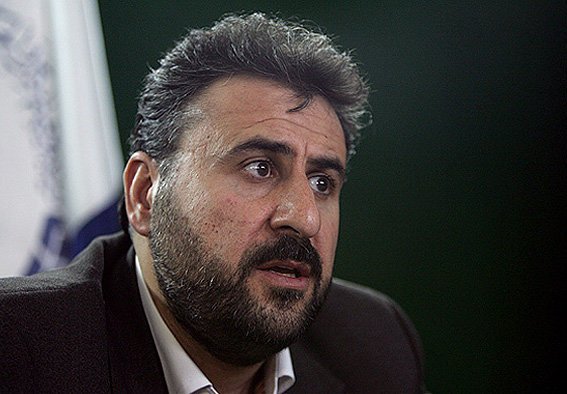
Heshmatollah Falahatpishe, a member of Iranian Parliament’s National Security and Foreign Policy Commission, says he has been repeatedly threatened and confronted by certain circles in the country because of his “realistic” criticism of Russia’s policies.
Referring to Russia’s measures against Iran at OPEC, Falahatpishe added that Iran has over and over become the plaything of Russia’s advantageous policies.
Aftab Yazd daily
Lawmaker slams shelving the plan for investigating officials’ assets
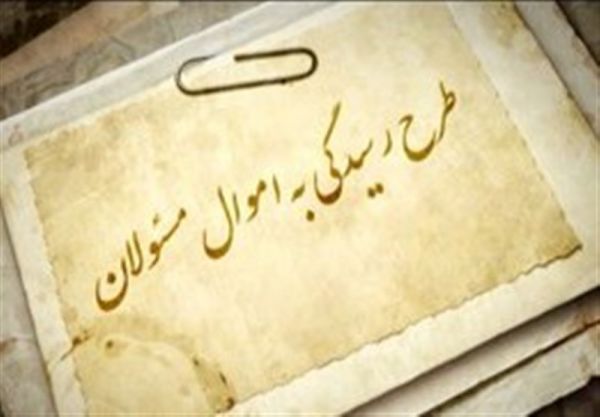
Farhad Tajari, member of Principle 90 Commission in the Iranian parliament, criticized shelving the plan to investigate officials’ and authorities’ assets and properties in Expediency Discernment Council for several years. He added that this plan was one of the essential priorities of Expediency Discernment Council, adding that “I do not know why it has not become operative yet.”
Tajari urged that people expect their representatives to deal with the issue of financial and bureaucratic corruptions of some of the officials.
Khabar Foori
79% of Telegram users in Iran still use the messenger

The latest poll in Iran shows that 79% of users of Telegram messenger are still using it despite its being filtered by the Iranian government. Following the filtering of Telegram, the number of users of Instagram and WhatsApp too has had a significant increase in Iran.
After popular unrests in December 2017, a number of high ranking Iranian officials including Iran’s supreme leader Ali Khamenei and judiciary officials attacked foreign messengers and social networks including Telegram, calling them tools for “infiltration of foreign countries and provoking people.”
Human Rights Campaign in Iran has announced in its report concerning filtering Telegram that blocking this messenger aims at stopping Iranians’ access to free information and the technology that is not controlled by the Iranian government.
Radio Farda
Ali Motahari asks Iranians to resist 6 months

MP Ali Motahari suggested that Iranian government should tell people in what condition Iran is and what are the roots of high prices in the market. He urged that under these tough economic conditions, no government can easily resolve the crisis. Motahari added that Iranian government is under pressure from outside to go to the negotiation table and “if people can resist for six months, the economic conditions will improve.”
Recently people have taken to streets all over Iran in protest against spiking prices, as well as skyrocketing price of the dollar in the foreign currency market.
Khabar online
Mehdi Taeb: Mashaee is a spy
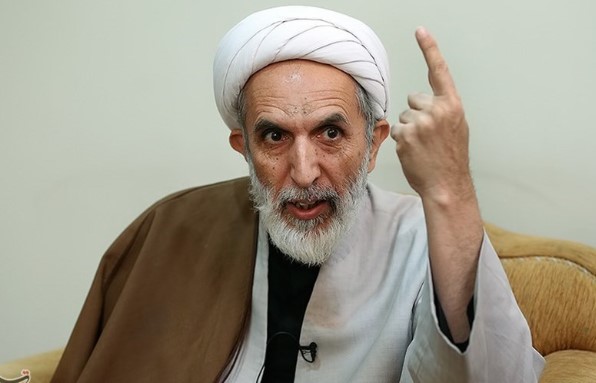
Head of Amar Cyber Base Mehdi Taeb called Esfandiar Rahim Mashaee a spy, implicitly admitting to his being tortured. Taeb said that Mashaee, former president Ahmadinejad’s chief of staff, had been a “professional intelligence officer” who “wouldn’t give up any intelligence even if beaten.” Mashaee has been arrested by Iranian Revolutionary Guards’ Intelligence Office that is controlled by Hossein Taeb, Mehdi’s brother.
Taeb also added Hamid Baghaee, Ahmadinejad’s executive vice president, “should have been executed.” Baghaee was condemned to 15 years of imprisonment on the charge of embezzlement.
Radio Zamaneh
